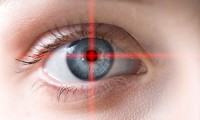-
Researchers’ wearable measures force athletes put on tendons
- Source: MobiHealthNews
- 2,563
- April 30, 2018
-
Multiple sclerosis drug could reduce painful side effects of common cancer treatment
- Source: medicalxpress.
- 808
- April 28, 2018
-
Specialty Vaccines for Overlooked Infectious Diseases–Challenges and Opportunities
- Source: fiercepharma
- 715
- April 28, 2018
-
mHealth Program Uses Smartphones to Monitor Medication Adherence
- Source: mHealth Intelligence
- 1,276
- April 28, 2018
-
mHealth app for clinical decision support improves diagnosis time, test ordering
- Source: Clinical Innovation
- 847
- April 27, 2018
-
Urotronic gets OK for advanced trial to treat narrowed urethras
- Source: StarTribune
- 2,177
- April 26, 2018
-
UCSD launching pilot trial of glucose-sensing ‘tattoo’
- Source: MobiHealthNews
- 1,038
- April 25, 2018
-
Next year’s flu shot will shield only 20% against dominant strain
- Source: fiercepharma
- 919
- April 24, 2018
your submission has already been received.
OK
Subscribe
Please enter a valid Email address!
Submit
The most relevant industry news & insight will be sent to you every two weeks.













